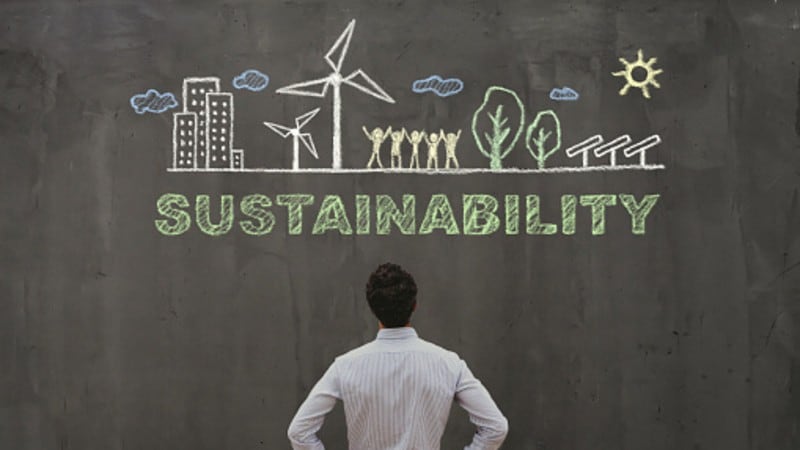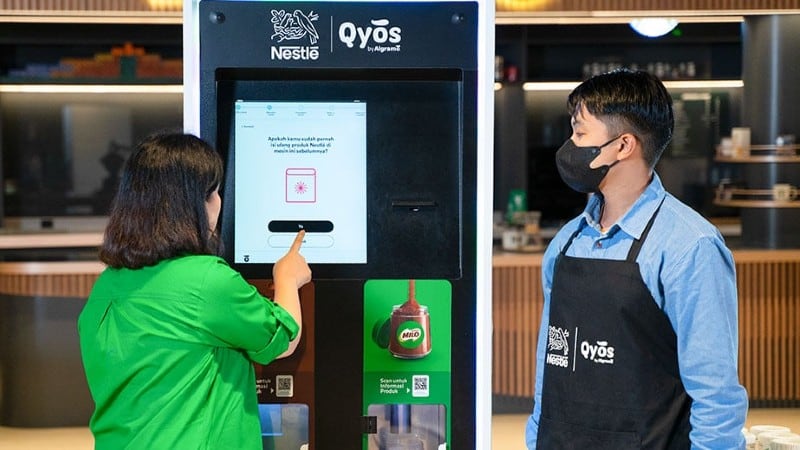Sustainability amid volatility: Nestle Malaysia pushes energy, packaging and plant-based progress despite economic uncertainty
Nestle Malaysia has vowed to continue its progress in environmental and business sustainability areas such as renewable energy, recyclable packaging and plant-based product innovation even amidst current global economic instability.
Nestle celebrated its 110th anniversary in Malaysia in 2022 as its global headquarters announced positive growth in the company’s overall organic sales and profits, as well as significant progress in its ESG initiatives.
“Nestle’s peak carbon [emissions status] has been behind us since the 2019-2020 period, but as of 2022 we are also below the 2018 starting levels greenhouse gas emissions, an important achievement,” Nestle CEO Mark Schneider said when presenting on the firm’s ESG progress.
Planet Positive plans: Asahi updates sustainability strategy with environment and financial focus to hit 2050 carbon zero targets
Japanese beverage giant Asahi has updates its corporate sustainability strategy as is seeks to improve its chances of hitting its 2050 carbon zero commitments.
The Asahi Group has updated its Environmental Vision 2050 under its new Planet Positive tagline, revising current initiatives to accelerate its progress towards existing climate change commitments within the Asahi Carbon Zero framework.
This includes an ambitious target to hit zero carbon dioxide emissions under all scopes (scope 1 and scope 2 emissions are directly owned/controlled by a company, scope 3 emissions are indirectly caused by its activities) by the year 2050.
‘Collective effort needed’: Cultural and behavioural challenges major hurdles for UAE national project
The National Food Loss and Waste Initiative (Ne’ma) backed by the United Arab Emirates government still faces immense challenges in the form of cultural practices and consumer behaviour as it seeks to halve food loss and waste.
Ne’ma is a partnership between the UAE Ministry of Climate Change and Environment, the Abu Dhabi Crown Prince Court and the Emirates Foundation.
Addressing the floor at the recent Gulfood 2023 event, Ne’ma project lead and Emirates Foundation Chief Sustainability Officer Khuloud Al Nuwais highlighted some of the major challenges that the project has had to address towards this.
Recycle-ready and lifestyle-compatible: Changing consumer demands driving packaging innovation in APAC
Brands in APAC should take into account the rising demand for product packaging that is convenient, responsible, and good for the environment to capture consumers’ attention, says a global packaging firm that has ramped up investment in China.
According to an Amcor survey involving 12,000 consumers in six countries, 76% of respondents said that they want to recycle more than they currently do.
“The trends that we are seeing reflect consumers’ changing priorities and lifestyles. From format substitution (rigid to flexible) to recycle-ready packaging and those that use less materials, we are working to provide responsible, sustainable and high-performance packaging that consumers are looking for,” Dr Lu Qiang, R&D Vice President of Amcor Flexibles Asia Pacific, told FoodNavigator-Asia.
What is palm oil sustainability? Forget premiumisation and complex certifications say experts
The age-old ideas that palm oil sustainability must involve complex certification processes and premium price points needs to be scrapped in order to truly achieve sustainable goals throughout the entire value chain, according to industry experts
For decades the concept of sustainability in the sector has been linked to expensive certification processes as well as higher price points.
But for sustainable palm oil to truly make its mark in the industry, there is a need to remove the shackles imposed by these ‘outdated concepts’, according to a panel of experts that convened at the recent Roundtable on Sustainable Palm Oil (RSPO) annual roundtable and symposium.





